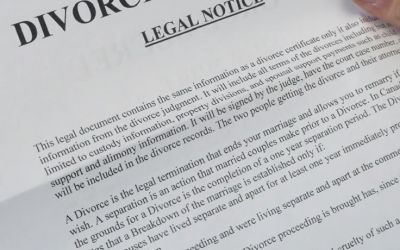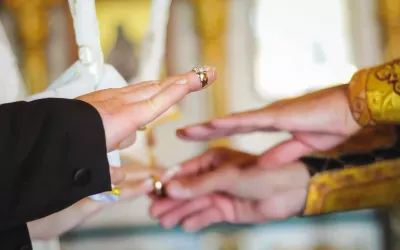Court Marriage for Muslims: Legal Pathway for Interfaith Couples in 2025
Table of Contents ▼
Can Muslims marry non-Muslims through civil court? Here’s how court marriage for Muslims helps interfaith couples.
The question of whether Muslims can marry non-Muslims in civil court is one that many couples face. For Muslim and non-Muslim couples, navigating the complex landscape of religious and legal requirements can be overwhelming. While traditional religious marriages often present barriers, court marriage for Muslims offers a practical and legal solution to interfaith unions.
This blog explains the ins and outs of court marriage for Muslims, the legal frameworks, religious considerations, and practical tips for Muslim and non-Muslim couples looking to marry.
Understanding Court Marriage for Muslims
A court marriage for Muslims is a legally binding union recognized by the state, not necessarily by religious authorities. This option provides Muslim and non-Muslim couples with a path to marriage when religious ceremonies may pose obstacles due to differing faiths. While the nikah (Islamic marriage) remains central in Islam, court marriage for Muslims provides a legal solution for couples who may not align with religious restrictions.
The key difference between a religious marriage and a civil marriage is that religious marriages are governed by theological guidelines, whereas civil marriages follow state laws. For interfaith couples, court marriage for Muslims ensures that the union is legally recognized, regardless of religious background.
Legal Frameworks Across Different Jurisdictions
The possibility of court marriage for Muslims with non-Muslims depends significantly on the country where the marriage is taking place. Laws related to interfaith marriages can differ greatly from one jurisdiction to another. Some countries have made reforms to allow interfaith marriages, while others continue to impose legal restrictions based on religious beliefs.
For instance, the UAE has recently reformed its marriage laws, allowing Muslim and non-Muslim couples to marry under civil law rather than Sharia law. Previously, interfaith marriages were subject to significant barriers under religious laws, but the new provisions allow non-Muslim foreigners and residents to marry under civil codes. Such reforms represent a major shift in how interfaith marriages are viewed and legally recognized.
However, specific requirements and conditions, such as residency status and documentation, must still be met for the marriage to be valid. Couples should always check with local authorities to ensure they meet all requirements.
Religious Considerations vs. Legal Realities
While court marriage for Muslims provides an option for interfaith couples, Islamic jurisprudence includes specific guidelines regarding interfaith marriages that may influence how couples view the situation. While the guidelines vary among different schools of Islamic thought, some common principles include:
- Muslim men are permitted to marry women from Abrahamic faiths, such as Jews and Christians, often referred to as “People of the Book.”
- Muslim women, however, are generally expected to marry Muslim men, and religious restrictions tend to be more stringent for women.
These religious guidelines may influence a Muslim’s decision to marry a non-Muslim partner, but court marriage for Muslims bypasses religious requirements, offering a solution that respects the legal side of the union without imposing religious restrictions. This is particularly important for Muslim women who wish to marry non-Muslim men.
Practical Considerations for Muslim + Non-Muslim Civil Marriages
Couples considering court marriage for Muslims should be aware of several practical factors, including documentation, legal rights, and marriage procedures:
Documentation Requirements
When applying for a court marriage for Muslims, couples must submit several documents, such as:
- Valid passports and IDs
- Birth certificates (often requiring legalization or apostille)
- Certificates of no impediment (proof that both parties are free to marry)
- Divorce decrees (if applicable)
- Translated documents in the local language (if necessary)
Missing or incomplete documents can result in delays, so it is critical to verify all paperwork well ahead of time. Consulting with a legal expert or consultant familiar with local marriage laws can help ensure everything is in order.
Legal Implications
A court marriage for Muslims carries legal implications that couples should understand. These include:
- Property ownership and inheritance rights
- Child custody and support
- Divorce rights and procedures
- Recognition of the marriage in the couple’s home country
- Tax obligations and financial responsibilities
Couples may want to consult legal professionals both in the jurisdiction of marriage and in their home countries to ensure that they understand the full scope of their legal rights and responsibilities.
Planning Timeline for Civil Muslim Marriage
Proper planning is essential when considering court marriage for Muslims, especially if the marriage is taking place abroad. A general timeline to follow is:
- 3-6 Months Before: Begin researching marriage options and gather required documents.
- 2-3 Months Before: Choose the jurisdiction for the marriage and begin the document authentication process.
- 1-2 Months Before: Submit initial applications and start arranging travel plans.
- 2-4 Weeks Before: Confirm all requirements with the local authorities.
- Arrival: Arrive several days before the wedding to address any potential complications.
Starting early ensures there is ample time to handle any unexpected challenges or issues with documentation.
FAQs
Will our court marriage for Muslims be recognized when we return home?
Recognition of a court marriage for Muslims depends on the couple’s home country. Most countries recognize marriages legally performed abroad, but some may require additional registration or may not recognize marriages that contradict local laws.
Can we include religious elements in our civil ceremony?
Yes, many civil ceremonies allow couples to personalize the service by incorporating religious or cultural elements. While the legal part of the ceremony must adhere to state requirements, couples are usually allowed to include symbolic readings or vows that hold personal meaning.
What if our families disapprove?
Family disapproval is common in interfaith marriages, and it can present significant challenges. Working with experienced consultants can help couples navigate this issue by finding ways to compromise and address family concerns while respecting the couple’s wishes.
Conclusion
Court marriage for Muslims offers a practical solution for Muslim and non-Muslim couples seeking a legally recognized marriage. With the increasing availability of civil marriage options in various countries, interfaith couples have more opportunities to marry legally, regardless of religious backgrounds.
While challenges related to religious guidelines, family expectations, and legal frameworks may arise, court marriage for Muslims helps ensure that couples are legally protected and able to formalize their union. With the right guidance, planning, and documentation, couples can focus on their future together rather than on bureaucratic obstacles.
If you are considering court marriage for Muslims, contact us today for professional support and guidance throughout the entire process.


